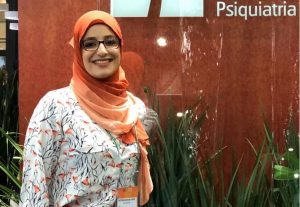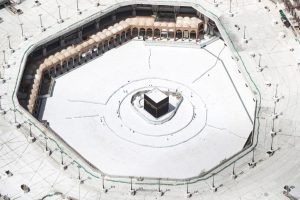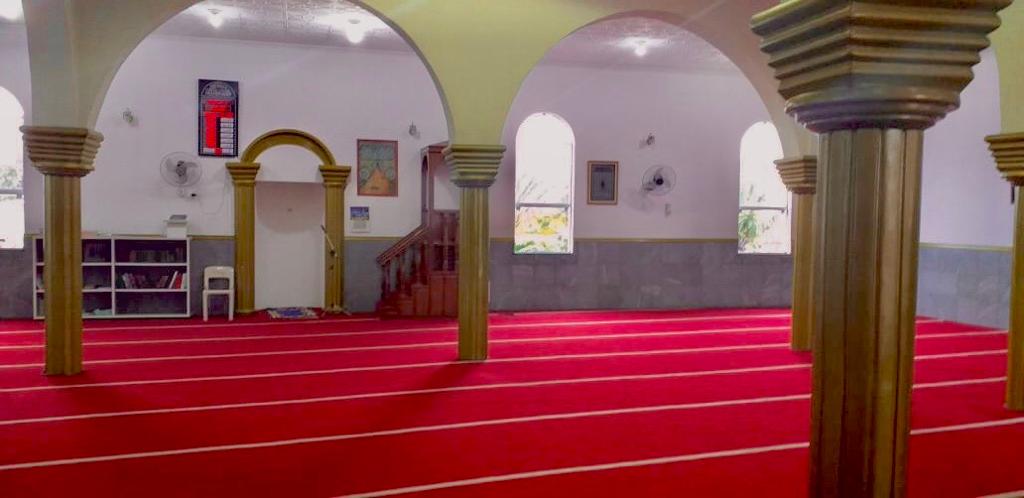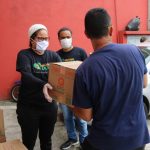São Paulo – Mosques in Brazil and the world over are closed for the quarantine. Staying home to avoid infection by the novel coronavirus is the most important thing Muslims can do right now, even as the month of Ramadan kicks off next Thursday (23). Fasting from sunup to sundown is one of the pillars of Islam. Muslims are instructed to pray and break their fasts at home. The meals that mosques usually offer this time of year will be staple food kits delivered to people’s doors.
Federation of Muslim Associations in Brazil (Fambras) president Ali Zoghbi explains that this year’s schedule has been completely changed, but the fasting and prayers will go on as usual for people, whether they live by themselves or with their families.
He said the decision to prevent crowds of any kind was made unanimously by Muslim religious authorities. “Islam prioritizes people’s physical integrity, so the recommendation is to keep mosques closed, and anyone with a health condition of any kind is not supposed to fast,” Zoghbi told ANBA.
People who have coronavirus or any other illness are not required to perform the fast, which they can make up for once they have recovered, or by donating food to families in need. Travelers, pregnant women, lactating women, children and the elderly are exonerated from fasting as well. You can find out everything you need to know about Ramadan in this article (those fasting must not even drink water).
According to Zoghbi, solidarity and prayer both multiply during the holy month. “Being close with one’s creator is very important during this time. People are required to perform five mandatory prayers, and additional prayers are advised during Ramadan. In line with what science tells us, we must pray by ourselves, in our homes,” he said.
Praying together is always beneficial and positive, Zoghbi said, since it is an important moment of social interaction. “However, praying alone with our families at home is all we can do right now. There are pros and cons to this. agora. This pandemic is reeducating us on how we view the world, and it will influence everything we will be. This is a moment of faith that calls for more mercy, more patience in what is recommended to us. We will not be the same once this pandemic is over,” he said.
Regarding charity, the said the decision was made to donate food kits because having the Iftar – or breaking of the fast – at mosques would cause people to gather. “The food kits and food items are being donated while taking every necessary step for protection, by a small number of volunteers, taking care not to put people at risk, with delivery logistics,” he said.
Fambras has had its Iftar Brasil project for over a decade now, and it includes the breaking of the fast for Muslims and non-Muslims alike. “This year we’re donating chicken and beef and food kits to various organizations. We are getting food inside people’s homes, using Fambras’ own resources,” said Zoghbi. Some 3,000 kits will be distributed across Brazil.
Zoghbi mused on Ramadan and the quarantine. “Ramadan is also about personal transformation through reflection. Social distancing can help us gain the clarity to reassess and reevaluate our habits, to reconsider where we are going, to repent for harmful attitudes towards ourselves and others, and to ask forgiveness for our sins. It is about purification so that a new phase in life can begin, and so that we can live fuller, happier lives.”
United by technology
Egypt’s Abu Bakr Ibrahim is the sheikh at São Paulo’s São Miguel Mosque (pictured above), and the head of sheikhs for Egypt’s Awqaf Ministry in Brazil. He moved to the country two and a half years ago, and he told ANBA how technology can help keep the community united during the ninth holy month of Islam.

“Ramadan is the month of visiting, so this is one is going to be a bit harder. The mosques are closed and gatherings are prohibited, but we can stay in touch with the people we love through social media, apps or even the phone. Let us fraternize in a different way, one that is also heartwarming,” said Bakr.
The sheikh is communicating with Muslims via WhatsApp, Facebook videos, and live streams. “Sheikhs can reach out to their communities by teaching lessons and having online praying sessions on Facebook and Instagram, so they can advise Muslims,” he said. Bakr advises the community to find out what method of communication is being used by their mosque of choice.
“Look at your mosque’s socials. There are many ways to communicate with people. the mosque is important, but if we can’t go, we need to see what’s most important and beneficial to the community,” he said.
Bakr said his mosque has given over 100 basic food kits to the community, and another 500 are expected.
Families
Victória Fares is a 23-year-old Medical student who frequents the Misericórdia Mosque in the southern São Paulo neighborhood of Santo Amaro. “There are four of us at home: my parents, my brother and me. During Ramadan, however, it’s usually us plus two childhood friends,” she told ANBA. Her father is a second-generation Lebanese immigrant; her mother was born in Lebanon.

For Fares, Ramadan is about unity, and an eagerly anticipated month for Muslims. The Covid-19 pandemic wrought changes to the daily routine at her home, especially when it comes to personal hygiene.
“The Salat [the five daily prayers] and the Iftar [breaking of the fast] will basically work the same way. It will be the six of us – my family and our friends –, while taking every step to protect ourselves. Not much will change at home, except for the fact that we won’t all go do the Salat Isha and the Taraweeh [prayer at the mosque]. Still, I can only thank Allah for everything, and even if we go through a few changes, Allah has to make things easier. I’m eager for it to begin,” she said.
Heba Altabakh of Syria is a Dentistry student in Palhoça, Santa Catarina. Married to a Syrian man, she moved to Brazil three years ago. eiba is not attending college at this time, but she does have online classes. During Ramadan, she’ll be able to watch the lessons at the time that suits her best, so that she can do her fast.
“The thing that changed Ramadan for me was when I made the move to Brazil; the quarantine hasn’t changed things much. Back in Damascus I had my family, I have four sisters and a brother. Mine’s a really big family, and I lost that by moving,” she told ANBA.
Altabakh claims that she’s the only Muslim in her college, and that she doesn’t know any other Muslim Arabs in the city besides her and her husband. So far there’s only a prayer room in Palhoça, but she said two mosques are in construction. “But it doesn’t matter, I care about my inner peace more,” she said.
Altabakh said her husband is still going out to work, and he will not have different work hours during Ramadan, because his employers are Brazilian. She will be home alone for Iftar. “I must break the fast around 6 pm. I’m not sure if I’ll call my family because of the time zone,” she said. Syria is six hours ahead of Brasília time.
“Fasting teaches us patience and control. I do get the urge to eat, and no one will see it if I do, but I can’t, because I have priorities in life. This is a time to be closer to God, a really cool experience, I really like it. Our most important relationship in life is with God, rather than with people,” she said.
Hajj

Hajj, the pilgrimage to Mecca, is slated for July 28 to August 2 this year. Saudi authorities haven’t cancelled it yet, but the Umrah, or the non-Hajj pilgrimage, is already out of the question, since the holy sites are closed and foreigners are not being allowed in the country. Would-be pilgrims are not advised to schedule their Hajj trip for the time being, because the event may be cancelled at any minute.
Translated by Gabriel Pomerancblum






